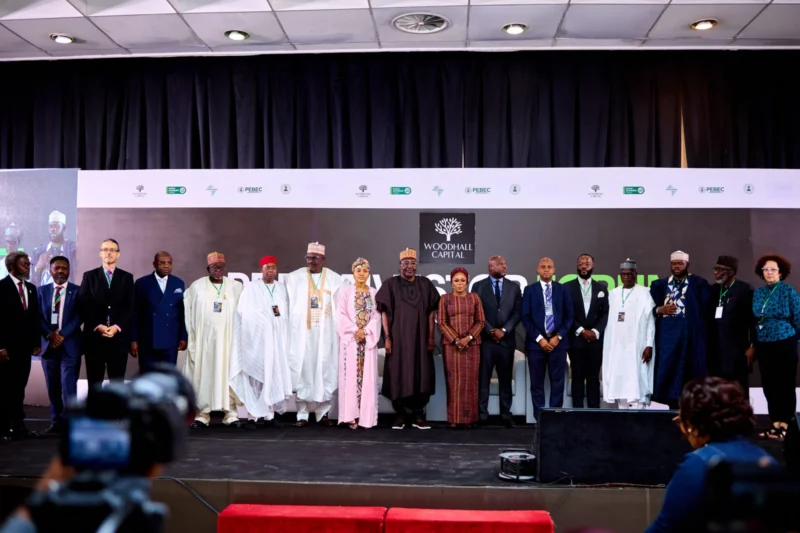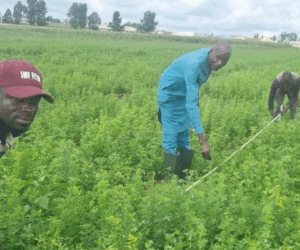By Kayode Adebiyi, News Agency of Nigeria (NAN)
One of the biggest challenges faced by African countries in global trade is that Africa does not sufficiently trade within itself.
Intra-African trade and investment are generally lower when compared to other major continental or regional blocs like Europe, Asia, and the Americas.
More so, trade records among African countries might be frequently understated, partly as a result of the lack of adequate data and the high rate of smuggling.
An Intra-Continental Trade Share data showed that Europe, Asia & Oceania and the Americas have 67 per cent, 64 per cent and 44 per cent intra-continental trade and investment, respectively.
On the other hand, formal intra-African trade and investment is put at between 12 per cent and 18 per cent.
Africa is also responsible for less than three per cent of total global trade, with recent figures often placing its share of global merchandise trade in the range of two per cent to 3.5 per cent.
Tendency for trade remains concentrated within the common-currency areas and trade zones that developed among African countries during the colonial era.
These trade relations are carried out by the often-inadequate means of transportation and communication, by the lack of complementary agricultural or other products, and by the limited development of manufacturing industries.
In response to this continental trade inadequacy, the ambitious trade policy, known as the African Continental Free Trade Agreement (AfCFTA), was conceived.
Experts say AfCFTA has the potential to become the world’s largest free-trade area, and the continent is expected to contribute more to world trade, thereby delivering economic growth to its citizens.
The broad objective of the AfCFTA is to create a single continental market for goods and services, with free movement of business persons and investments, paving the way for accelerating the establishment of the Continental Customs Union.
AfCFTA has the potential to enhance competitiveness at the industry and enterprise levels through the exploitation of opportunities for scale production, continental market access and better reallocation of resources.
To facilitate intra-African trade and investment, Woodhall Capital recently collaborated with other stakeholders to organise a Pre-Investor Forum on the Intra-African Trade and Investment Conference in Abuja.
Woodhall Capital is an indigenous investment banking firm that provides expert financial advisory services aimed at securing international funding for clients.
In collaboration with the Nigeria Governors’ Forum (NGF) and Afreximbank, the firm focuses on facilitating connections between international investors and financial institutions, as well as corporate entities, seeking capital infusion.
The Presidential Enabling Business Environment Council (PEBEC) and the Office of the Senior Special Assistant to the President on International Cooperation (OSSAP-IC) were also co-organisers of the event.
The forum was themed “Facilitating Intra-African Trade: Unlocking the Potential of African Direct Investments (ADI) and Foreign Direct Investments (FDI) to Drive Trade and Sustainable Growth.”
In his keynote address and official opening, Vice-President Kashim Shettima echoed the opening paragraphs of this article, decrying the trade deficit among African countries.
“For too long, the narrative of African trade has been tainted by what we extract and export to the global north; we need to channel our energy into intra-African trade.
“Consider this fact: trade within the European Union is over 75 per cent of its total; for Asia, it is over 60 per cent.
“However, for Africa, it is sadly reported to be below 17 per cent.’’
The forum also highlighted how Nigeria’s subnational governments can serve as anchors for regional economic integration under the AfCFTA.
Shettima, therefore, said Nigeria was best-positioned to lead the intra-African trade and investment revolution because the Federal Government was removing investment bottlenecks and boosting ease of doing business.
He emphasised the role of subnational governments in the Nigerian-led continental trade and investment revolution.
“The revolution cannot be led by Abuja alone. It will be driven by a subnational structure, with the governors in charge,’’ he said.
Agreeing with the vice president, Mrs Mojisola Hunponu-Wusu, President of Woodhall Capital, reaffirmed the firm’s commitment to creating structured investment platforms that connect state-led development initiatives with domestic and international investors.
“Africa’s growth story is increasingly subnational, and unlocking the potential of Nigerian states through strategic partnerships, policy alignment, and capital mobilisation is vital to achieving sustainable economic transformation across the continent.”
She also commended the present administration for what she called bold reforms redefining Nigeria’s investment landscape.
“The president’s visionary Renewed Hope Agenda and bold macroeconomic reforms have redefined Nigeria’s investment landscape.
“The liberalisation of the foreign exchange market, the unification of exchange rates, and the ongoing efforts to deepen the domestic capital markets are catalytic policies that have restored investor confidence.
“These reforms are not merely economic — they are transformative, laying the foundation for sustainable trade, industrial growth, and subnational economic empowerment,” she said.
Experts say intra-African trade, in spite of its lower volume compared to other continents, tends to involve a higher share of processed and manufactured goods compared to Africa’s trade with the rest of the world.
They say trading outside the continent is often dominated by extractive commodities, whereas trading manufactured goods domestically is generally seen as more beneficial for value addition and job creation.
Stakeholders at the event, therefore, agreed that the key to boosting intra-African trade and investment lies in subnational governments.
Dr Terhemen Johnpaul, Chairman of the Forum of State Investment Promotion Agencies of Nigeria (FoSIPAN), agreed that the next frontier of Nigeria’s prosperity lies in subnational areas.
For Mr Alain-Thierry Mbongue, Regional Chief Operating Officer, Anglophone West Africa (AWAF), Afreximbank, the bank believes in the transformative potential inherent in sub-sovereign leadership in driving trade and investment.
“This commitment led to the inception of the African Sub-Sovereign Governments Network (AfSNET) in Durban, South Africa, in 2021.
“This initiative convenes governors, premiers, mayors, and other sub-sovereign leaders across the African continent, facilitating the implementation of the AfCFTA with a pronounced emphasis on enhancing intra-African trade and economic collaboration at the sub-national level.
“Through AfSNET, African sub-national leaders are afforded the opportunity to exchange knowledge, collaborate on innovative policy development, and access Afreximbank’s extensive suite of financial and trade facilitation services, tailored to address the unique sub-sovereign developmental requirements.
“In addition, we support African sub-national entities in their investment endeavours, by forging connections with investors and potential financiers to elevate their projects to new heights.
“Our belief is simple: development must be decentralised; it must begin where the needs are most deeply felt, in cities, provinces, counties, and regions, and flow outward to shape national and continental progress,” he said.
Mbongue said AfSNET investment conferences, over the past four years , had collectively attracted more than 150 governors and generated over 2 billion dollars in trade and investment deals.
The bank also hopes to create new pathways for industrialisation, foster innovation ecosystems, and develop integrated value chains across various sectors, including agriculture, manufacturing, infrastructure, energy, healthcare, and digital commerce.
Some experts have pointed out that African Direct Investments (ADI), while growing, have traditionally been a smaller component of Africa’s total FDI compared to investments coming from outside the continent.
Hunpunu-Wusu said fostering and nurturing partnerships were crucial for growing ADI and FDI for sustainable growth and development.
She also said her firm was targeting 30 billion dollars in fresh capital from upcoming investment tours in the UK and the Middle East, as part of efforts to deepen financing for sub-national and sovereign infrastructure projects.
She disclosed that the firm had already raised 6 billion dollars over the past 11 years and was currently managing a 1 billion dollars transaction, one of several major deals in the making.
“We are working on a single billion-dollar transaction at the moment; in the first year, when we go to London, we are hoping that we will have raised 10 billion dollars,” she said.
Gov. AbdulRahman AbdulRazaq of Kwara and Chairman of the NGF said the government at the subnational level was more committed than before to creating an enabling environment for investment.
Represented at the event, the governor reiterated that states hold the key to unlocking Africa’s next wave of trade and economic growth.
He cited the Investopedia platform, recently unveiled in collaboration with Woodhall Capital, to map out sub-national and national investment opportunities across Nigeria to link state project pipelines with credible investors in the UK and the UAE.
“This meeting is not just a prelude to the upcoming international industrial mission; it is a declaration that Nigerian states are open for business, already bankable and globally competitive.
“Our collective goal today is to deepen collaboration, mobilise capital and strengthen confidence in the sub-national investment ecosystem,” he said.
A major highlight of the pre-investor event was the formal signing of strategic MoUs and partnership agreements between Woodhall Capital and Afreximbank.
The agreements included the Africa Trade Gateway (ATG) Contract, which upgrades Woodhall Capital from a Market Maker Agreement to a Strategic Trade Corridor Partner, and the Creative Hub MoU between Afreximbank’s Creative Africa Nexus (CANEX) and Woodhall Capital.
The Creative Hub agreement is aimed at financing Africa’s creative economy and transforming cultural assets into globally tradable investment classes.
Participants at the forum said the event reinforced the collective resolve of governments, financiers, and investors to deepen Africa’s economic integration and position Nigeria as a leading hub for intra-African and global investment flows.
Princess Zahrah Mustapha, the Director-General of the Presidential Enabling Business Environment Council (PEBEC), said that Africa’s future growth depended not only on attracting foreign investment but also on mobilising African capital for African development.
“We must continue to close the gap between policy ambition and business reality by harmonising regulations, ensuring policy consistency, and deepening public–private partnerships,” she said.
The Pre-Investor Forum on the Intra-African Trade and Investment Conference had two panel discussions broadly focused on building investor confidence and creating an enabling environment for trade and investment.
The stakeholders dedicated the interactive session to unlocking trade, investment, and global opportunities by catalysing Africa’s creative economy. (NANFeatures)
***If used, please credit the writer and the News Agency of Nigeria.








